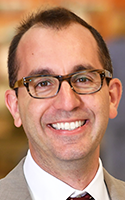The opioid epidemic knows no bounds, and that includes how it is affecting older populations
By Colleen M. Farrell
Talk of the dangers of opioid medication has dominated local and national headlines for the last couple of years.
Much of that conversation has centered on young people. But studies have shown that no one is immune — including senior citizens.
That’s why many health care providers are spending more time discussing the use of opioid medication with their older patients.
Misuse of opioids among older Americans is increasing, according to the Substance Abuse and Mental Health Services Administration. The agency reported in 2017 that opioid misuse in people aged 50 and up was higher in 2014 than it was in most years between 2001 and 2011. While the proportion of older Americans abusing opioids is relatively small compared to young adults, the agency has labeled it a public health concern.
It’s an issue that garnered attention from the Senate Special Committee on Aging. Members held a hearing on it in May, soliciting input from recovering addicts, medical providers, and health care experts.
In light of that, doctors are talking about how to manage pain without opioids, how to properly use them if they are necessary, and how to keep pain medication secure if, indeed, it is prescribed.

Opioid use is discussed more today than it was a decade ago, according to physician Steve Ryan, chief of geriatrics at Rochester Regional Health and medical director for ElderONE, an all-inclusive program for the elderly.
“Twenty years ago, it was a discussion that these drugs might help you on a limited basis, help you walk more, help you get out of bed — and that’s a good thing,” he said. “Today, there are cases where that still may be the case, but some patients or members of the family could have trouble controlling the medication.”
Those conversations have ramped up in particular over the last five years.
“I think more people are aware,” Ryan said. “You turn on the news any night and you hear something kind of frightening, so no one wants to be another example on TV.”
Seniors can be especially vulnerable to drug dependency, according to Joseph Talarico, general surgeon and the director of the Hernia Center of Excellence and co-director of the Robotic Center of Excellence, both at F. F. Thompson Hospital.
“Those that live alone or who lack a strong social network are exceptionally vulnerable,” he said.
That is why it’s critical for doctors to not only know what medications their patients are on, but why.
“It is important to discuss risk and benefits of each drug individually and in context with other drugs,” he said.
Practitioners are talking about a couple of different topics with their patients, Ryan said. The first is screening them about any past use of narcotics and other substances, including alcohol. Doctors ask if patients ever had trouble stopping use of medication.
Doctors also want to know about a patient’s home environment and lifestyle. They want to know how patients will keep their medications safe so they don’t fall into the wrong hands. As for lifestyle, doctors want to know if the patient has any chronic stress, like caring for an ill loved one or a demanding job. Such stressors can increase the potential for developing a problem.

Alcohol use is also a very important piece of information in a patient’s treatment plan, according to Mark Winsberg, medical director of Rochester Regional Health Chemical Dependency Services of Monroe County.
“It’s not unusual for somebody to, say, be drinking alcohol at a certain level and they may not be officially an alcoholic, but they may be drinking a fair amount. If you give them opioids along with that, that can be a pretty dangerous combination,” Winsberg said.
There are other factors that can make a senior susceptible to developing a problem with opioids, according to Winsberg.
The body’s metabolism changes as we age and that, coupled with being on other medications, affects how drugs are metabolized in the body. They can last longer, potentially making them more dangerous. The medications can affect one’s balance, leading to falls, as well as one’s judgment and memory.
Because opioids pose risks, doctors are having more conversations with their patients about pain control after medical procedures, Ryan said. Pain is part of the healing process, he noted, adding that not all forms of pain require narcotics.
It’s critical to discuss potential discomfort and how it will be treated, Ryan said. Topics should include the type of medication that will be used, the duration, and what to do if the medication is not sufficient.
“I think most of my surgical colleagues have a more concrete plan today compared to a decade ago,” Ryan said.

Talarico agreed. “There is a role for opiates in pain control,” he said. “However, in the older population, we have begun to carefully examine what pain medications we routinely use. We are more focused on non-opiate based in control and use a combination of Tylenol/ibuprofen/muscle relaxant.”
Ryan said that he also sees patients who are adamantly opposed to taking strong medications. It behooves the practitioner to consider each patient on a case-by-case basis and develop the best form of treatment for him or her, he said.
“Folks don’t need to be afraid of taking medication that they need. They just need to work with their doctors and ask questions periodically and keep that conversation going,” Ryan said.
